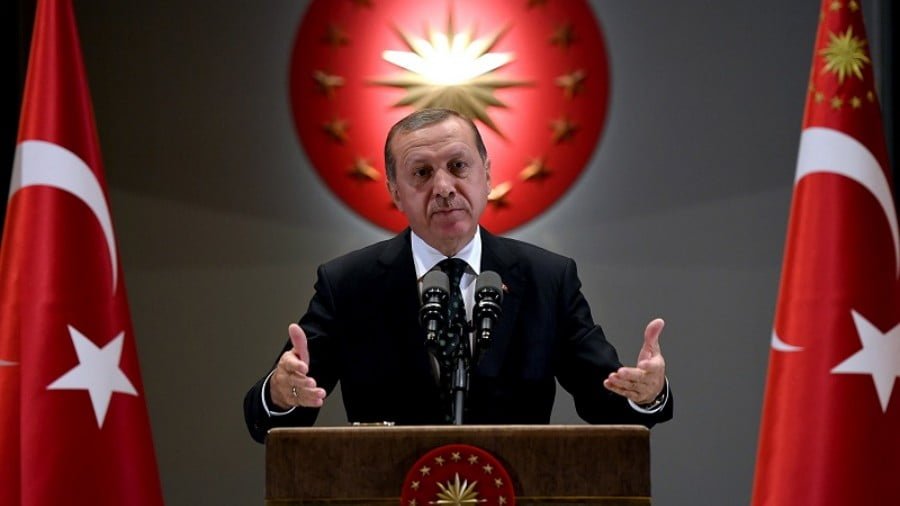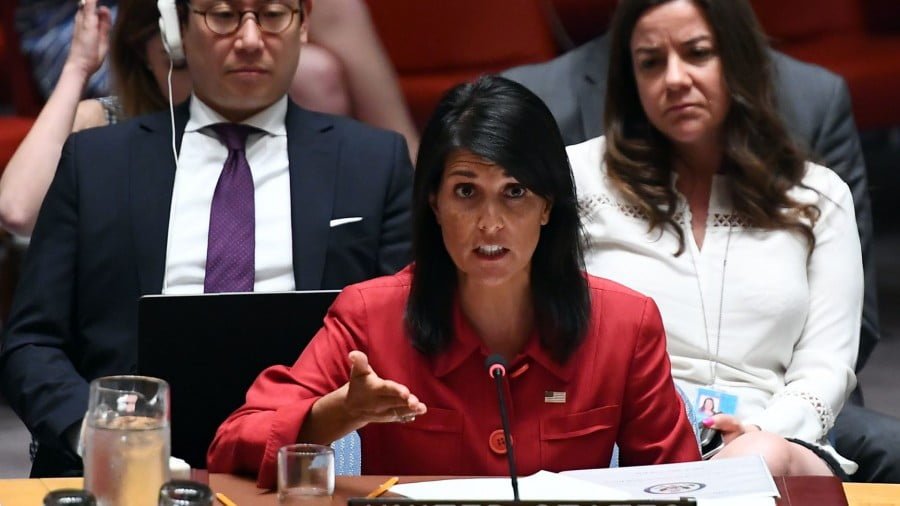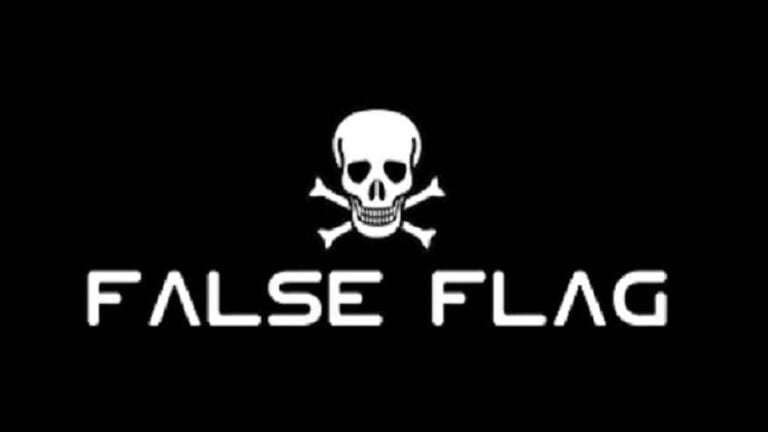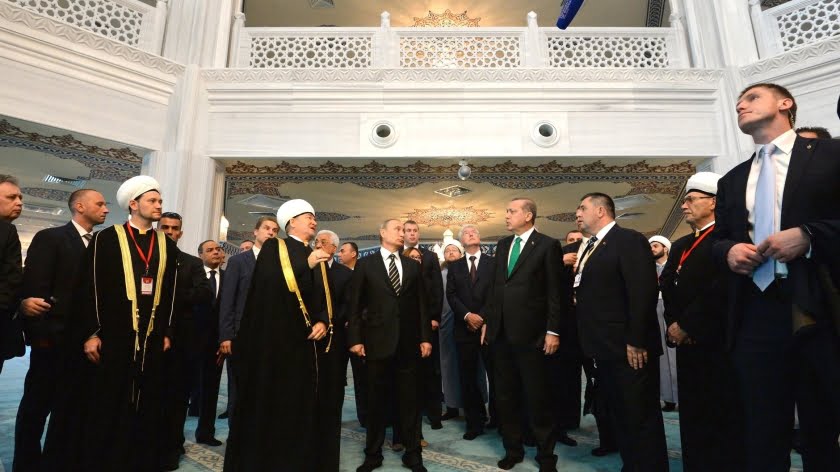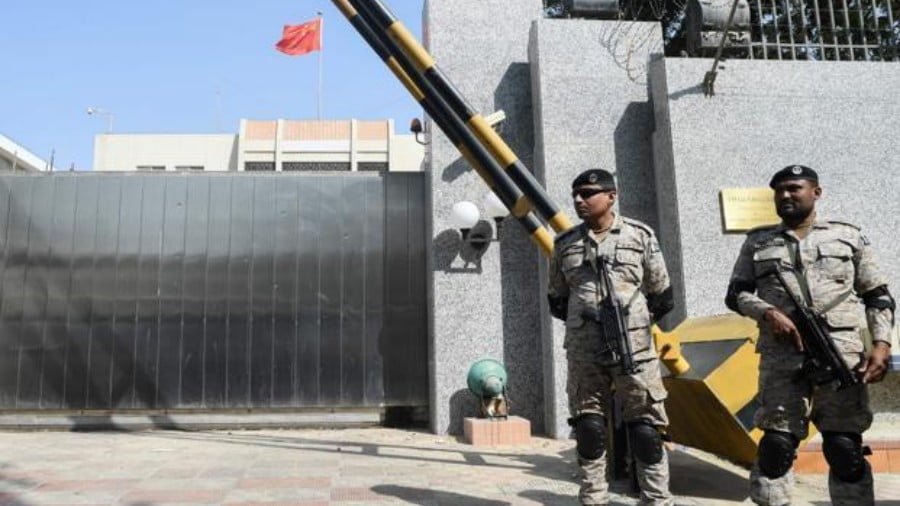The US’ Anti-Turkish Sanctions Will Strengthen Its Target’s Sovereignty
The recently imposed targeted sanctions against Turkey and the impending National Defense Authorization Act (NDAA) 2021 ones mandating similar measures against it for its acquisition of Russia’s S-400 air defense systems, while illegal in terms of international law and a blatant example of unfriendly meddling in its nominal NATO ally’s affairs, will actually strengthen its target’s sovereignty by inspiring it to double down on its independent policies.
Subversive Sanctions
Mideast observers were alarmed but not necessarily surprised to hear that the US recently imposed targeted sanctions against Turkey and that its National Defense Authorization Act (NDAA) 2021 mandates similar ones for its acquisition of Russia’s S-400 air defense systems. The US has long threatened to punish its nominal NATO ally under the Countering America’s Adversaries Through Sanctions Act (CAATSA), but now it’s finally come to pass and will become law through the NDAA. Although Trump threatened to veto it for not appealing Section 230 of the Communications Decency Act, the Senate has a veto-proof majority so they’ll ultimately be able to override his efforts. Moreover, Monday’s targeted sanctions show that the President certainly supports this policy in principle. Although illegal in terms of international law and a blatant example of unfriendly meddling in its putative partner’s affairs, this development actually strengthens its target’s sovereignty by inspiring it to double down on its independent policies.
Turkey’s “Military Diplomacy” With Russia
The US’ intention is to pressure Turkey into reversing its fast-moving rapprochement with Russia over the past few years which was supercharged after the failed pro-American military coup attempt against President Erdogan in summer 2016. That decisive event showed Turkey the importance of diversifying its strategic partnerships, particularly in the military sphere, ergo its decision to purchase the S-400s. The US argues that these systems are redundant since Turkey has access to American options instead, yet it’s particularly because of the unprecedented distrust between those two countries that Ankara doesn’t feel comfortably relying on its so-called “ally’s” equipment, especially not after the failed military coup. Since then, “military diplomacy” — the use of military means to advance political ends — has been at the core of the emerging Russian-Turkish Strategic Partnership. This has enabled both countries to quickly improve the trust between them, as well more responsibly manage regional conflicts such as those in Syria, Libya, and Azerbaijan.
American Mistakes
American policymakers underestimated President Erdogan’s resolve to diversify Turkey’s strategic partnerships, wrongly thinking that the threat of sanctions would succeed in getting him to step back from his country’s ongoing rapprochement with Russia and possibly even manufacture an unexpected rift between them if Ankara abandoned the S-400 deal. They also failed to understand just how much he distrusts the US after the failed military coup. By arrogantly sanctioning his country, they’re counterproductively confirming his suspicions that the US treats Turkey like a “junior partner” and is still committed to undermining him personally after he invested so much of his political reputation at home into seeing the historic S-400 deal succeed. Even a simple leadership analysis by a casual observer would suggest that threats are the wrong way to deal with someone like President Erdogan since he doesn’t back down and is actually emboldened to stick with his position when pressured for principle’s sake. The US obviously knows this, yet it still sanctioned Turkey.
Three Explanations
There are three primary explanations for why they decided to go through with this policy in spite of that. The first is that the US’ permanent military, intelligence, and diplomatic bureaucracies (“deep state”) are deeply divided on the issue and that the pragmatists who understand just how counterproductive this policy is have been beaten by the ideologues who want to send a strong message of displeasure by sanctioning Turkey. The second one is that the “deep state” is united on this issue, perhaps believing that the substance of the forthcoming sanctions will eventually be just as significant as their optics and thus stand a chance of succeeding with their stated goal. And thirdly, it might very well be that the US has resigned itself to the fact that the Russian-Turkish Strategic Partnership is a geopolitical reality that won’t be going anywhere anytime soon and that the best that they can do is show the world that the American-Turkish Strategic Partnership will be irreparably harmed as a result.
The US’ Dual Containment Strategy
The author predicted last month that “Russia & Turkey Stand To Lose The Most From A Biden Presidency”, arguing that the Democrat’s promise of more pragmatic relations with China and a possible return to the Iranian nuclear deal would combine to put immense pressure on those two Great Powers, though with the unintended outcome of naturally driving them even closer together into a deeper relationship of complex strategic interdependence. That likely being the case in such a scenario, the US might want to get a head start on its dual containment of those two, thus finally imposing sanctions on Turkey for its S-400 purchase in order to set the stage for the next four years, during which time its target will either double down on its independent policies or buckle under pressure. The latter scenario is unlikely though since it would amount to Turkey strategically submitting to the US’ fading unipolar hegemony, which would have drastic consequences for the country’s sovereignty, perhaps even accelerating America’s plans to carry out regime change there.
Concluding Thoughts
That’s why the last of the three explanations behind this move — that the US accepts the continued existence of the Russian-Turkish Strategic Partnership but wants to fire off a warning shot signaling its severe displeasure — is the most credible. This observation also reinforces the author’s feelings that Russia and Turkey will be Biden’s top two geopolitical targets, which will in turn lead to them moving much closer together in response. It’ll of course remain to be seen whether more such sanctions will be symbolic or substantive, but this development is still an unquestionably negative one for American-Turkish relations. President Erdogan’s domestic position won’t be weakened either, but will actually improve since the US is showing the Turkish people how responsible their leader’s “military diplomacy” was in diversifying the country’s strategic partnerships out of concern that America couldn’t be trusted. While the future is always difficult to predict, one thing is clear, and it’s that US-Turkish relations will never be the same after these sanctions were imposed.

